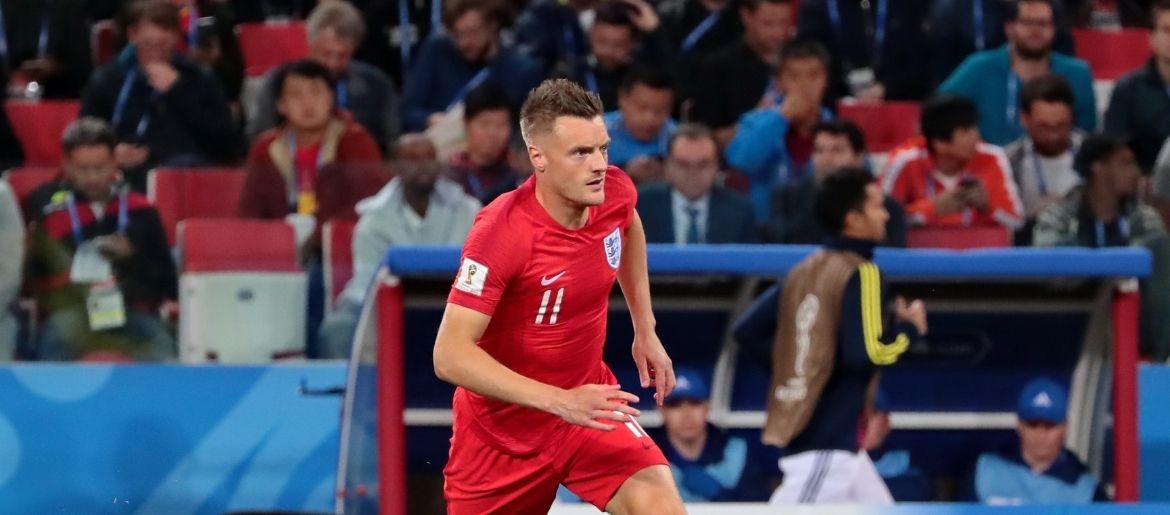It is the dream of many young boys (and girls) to become a professional football player. Most dreamers don’t pursue the dream, but some do. And for those who do, it can be a difficult life. Jamie Vardy started his senior career at the unknown, 8th division team Stocksbridge Park Steels FC, in a small town between the city of Sheffield and the northern fringes of the Peak District.

He only broke into their starting team at the age of 20, an age by which most players would admit, that if they have not yet been noticed, their chances of playing in the big leagues are non-existent. In recent interviews, Vardy gave some insight into his days playing part-time for the club for £30-a-game, having to rush from 12-hour shifts at back-breaking work in a factory. His successes on the pitch got him signed by FC Halifax Town in 2010. A year later, he was bought by Conference side Fleetwood Town. He guided the Lancashire team into the Football League for the first time in their history, who then sold him to Leicester City in May 2012.
In his first season the striker struggled for form and, after criticism from fans, even considered quitting football at the end of his first season at the East Midlands club. But he didn’t. And, as they say, the rest is history. This season Vardy has scored in 11 consecutive games, breaking the previous record, guided Leicester to top of the league, gained his first England cap, and recently scored his first international goal against historic rivals Germany, with a deft back heel. (Video above)
Why are we so interested in football? And why is this particular story so compelling to us, that there is likely to be a Hollywood movie made about Jamie Vardy? Let’s start with the first question. Historically mankind has had somewhat an obsession with domination and war. Over the course of human history, much of that thirst for blood, has (thankfully!) been diluted to the creation of sport. The original sports were also battles, used by militaries as training exercises, to prove soldiers were up to the task of war. Later, they took the form of sport such as the gladiator fighting in Rome, with death for the loser. But as much of world civilization evolved, so did its sports. We are obsessed with football because there is a battle taking place between two teams. But it is more than that.
Think of your favourite team. You want to watch your team win, right? So if I asked you, who would you rather see your team play: Barcelona or Doncaster Rovers? Why would you choose Barcelona, your team is almost certain to win against Doncaster? The reason is, that you are not interested watching one side demolish a less equipped team. You want to see a good battle taking place, where either side may win, but they are just as likely to lose. Both sides are equally matched, and you want to see your side edge to victory.
Whilst there may be many socio-biological reasons for the human attraction to conquest, the Rabbinic insight is as profound as it is surprising: It is because the war and heroic warriorship is the whole purpose of life.
This universal battle that we all relate to is of course the battle taking place between me and myself. There are two enemies locked in mortal combat. It is one version of ourselves against another. Deep within lies a beastly self, capable of intense self-centredness, and of hurting anyone else who gets in the way of our base drives, lusts and desires. Matched against such a formidable foe lies a higher self that is focused on loving, giving, meaning and purpose.
This is where true strength lies. The Mishna has already alluded to real strength and power as being able to rule over oneself. That person is greater than any warrior, or ruler over a city. This internal struggle that takes place within, is one that we desperately want to win. Somewhere programmed into every human being is the sense that the world is locked in battle. When the human sees an external war, there is something in our psyche that resonates with it, and compels human fascination. And that fascination is drawn over to sport and to its heroes.
Let us now ask, why is this story of Jamie Vardy such a compelling one? I believe this lies in the dream that we are all capable of achieving absolute greatness. Here is a man who worked tirelessly even when, to the objective bystander, his efforts seemed no more than a waste of time. He rose through the ranks, and has made sporting history. It is worth mentioning, that this fairy-tale does not happen to everyone. That does not render our efforts meaningless. Our perspective of his success may be better served when looking in the context of human history as a whole. That means to say that our efforts, even if they go unnoticed are not without meaning, rather they will lead to the next generation achieving something greater, ultimately culminating in an era of true peace and harmony. The Vardy story represents the whole spectrum from beginning to end. His story was from factory worker to superstar. Our story is from slavery to freedom. From war to peace. From darkness to light.
The story of Jamie Vardy is remarkable not because he went from rags to riches, but rather because he reminds us that with hard work we are all capable of bringing out our true greatness. And that greatness is not about being famous. It is a greatness that lies within, in our battle to be the person we were born to be.

